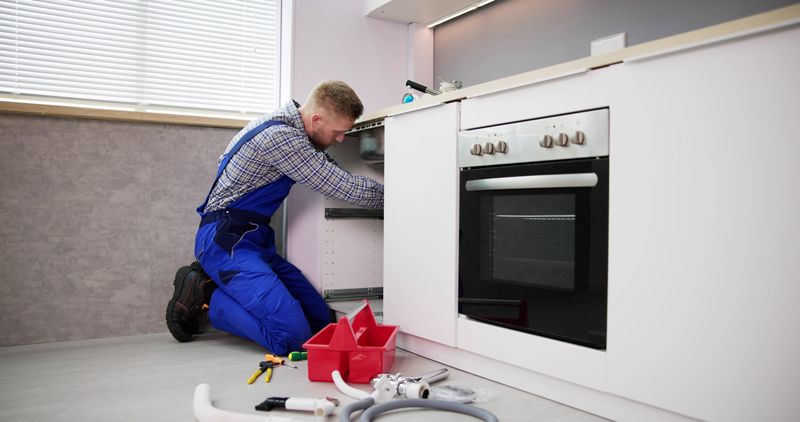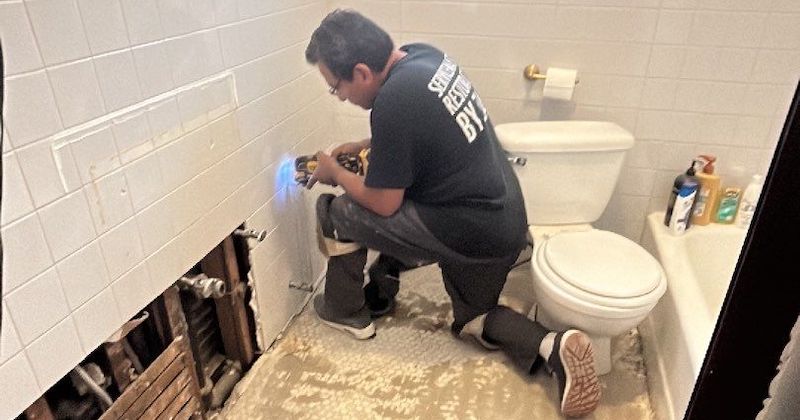Essential Bathroom Plumbing Tips for New Homeowners
Essential Bathroom Plumbing Tips for New Homeowners
Blog Article
What are your thoughts about 11 Must-Read Tips for Plumbing a New House?

For brand-new home owners, understanding and preserving washroom pipes can conserve both money and time by preventing costly issues down the line. Right here are some crucial bathroom plumbing tips to help you keep everything running smoothly.
Familiarize Yourself with the Main Shut-Off Valve
Understanding where the primary water shut-off valve is located in your home is vital. This allows you to quickly turn off the supply of water in case of major leakages or throughout pipes emergencies, stopping extensive water damages.
On A Regular Basis Check for Leaks
Small leakages can lead to big troubles. Consistently check under sinks, around bathrooms, and near plumbing components for any kind of indications of leaks. Look for wetness, small drips, or rust. Capturing and fixing leaks early can avoid more serious damages and save water.
Do Not Neglect Slow Drains
If your sink or bathtub is draining pipes slowly, it's typically an indication of a blockage forming. Resolving this very early can avoid a complete clog. Make use of a plunger or a plumbing's snake to clean out particles. Avoid utilizing chemical drain cleansers as they can harm your pipelines with time.
Know What Not to Flush
Commodes are not waste disposal unit. Avoid purging anything aside from toilet paper and human waste. Items like wipes, feminine hygiene products, and cotton swabs ought to be gotten rid of in the garbage to prevent clogs and sewer back-ups.
Install Strainers in Drains
Location filters in your sink and tub drains to capture hair and other debris prior to they enter your pipes system. Cleaning up the strainers on a regular basis will assist avoid accumulation and keep water flowing easily.
Keep Your Hot Water Heater
Guarantee your water heater is readied to a suitable temperature (commonly about 120 levels Fahrenheit) to prevent scalding and reduce power usage. Flush the storage tank yearly to remove debris buildup, which can decrease the performance and lifespan of your heating unit.
Upgrade Your Fixtures
If your home has older components, think about updating to much more reliable versions. Modern commodes, showerheads, and faucets are created to utilize less water while offering good pressure, which can substantially decrease your water costs and ecological footprint.
Be Cautious with DIY Pipes Repair Works
While it's alluring to handle all home repair services on your own, beware with plumbing. Some problems could require professional competence, particularly if they include major water lines or sewer repair services. Hiring a specialist can occasionally be a lot more cost-efficient than DIY, particularly if it avoids additional damages.
Plan For Cold Weather
Shield your pipelines from freezing during cold weather by shielding pipelines in unheated locations like basements, attic rooms, and garages. During extreme chilly, let cold water drip from taps served by revealed pipelines to assist avoid cold.
Set Up Routine Upkeep
Take into consideration organizing yearly assessments with a licensed plumber. They can identify concerns that you could miss, such as concealed leakages or deterioration on pipes and components. Routine maintenance assists prolong the life of your pipes system and can prevent emergency situations.
Verdict
Comprehending and keeping your home's restroom pipes can prevent numerous typical issues. By complying with these essential ideas, you can guarantee your restroom stays functional and effective, saving you time and money in the future.
Essential Plumbing Tips for Homeowners: Keep Your Pipes Flowing Smoothly
As a homeowner, understanding the basics of your plumbing system can save you time, money, and a lot of headaches. Plumbing issues can range from minor annoyances like dripping faucets to major problems like burst pipes that cause significant damage. This guide provides essential tips to help you maintain your plumbing system and tackle common issues.
Understanding Your Plumbing System
Supply System: Brings fresh water into your home from a municipal source or a well. Drain-Waste-Vent System: Removes wastewater and vents sewer gases outside. Fixtures and Appliances: Includes sinks, toilets, showers, dishwashers, and washing machines. Basic Maintenance Tips
Regular Inspections: Periodically check for leaks, corrosion, and other signs of wear and tear. Look under sinks, around toilets, and near water heaters. Know Your Main Shut-Off Valve: In case of a major leak, you’ll need to shut off the water quickly. Ensure everyone in your household knows where the main shut-off valve is located. Prevent Frozen Pipes: In cold climates, insulate exposed pipes and let faucets drip during extreme cold to prevent freezing. Use Strainers: Install strainers in sinks and tubs to catch hair, food particles, and other debris that can cause clogs. Common Plumbing Issues and Solutions
Clogged Drains:
Prevention: Avoid pouring grease down the drain and use drain screens to catch debris. DIY Fix: Use a plunger or a plumbing snake to clear minor clogs. For stubborn clogs, a mixture of baking soda and vinegar can sometimes help. Leaky Faucets:
Prevention: Replace washers and seals regularly. DIY Fix: Turn off the water supply, disassemble the faucet, and replace worn parts.

Book-Now Report this page